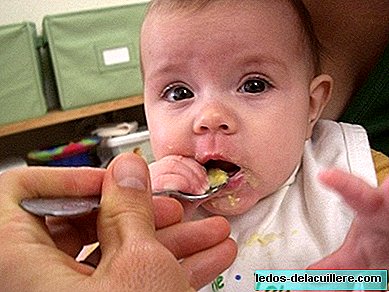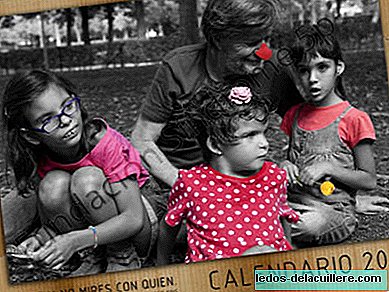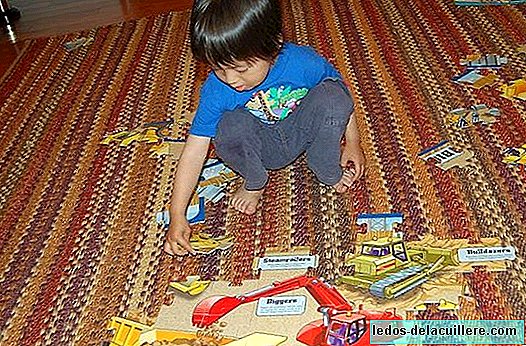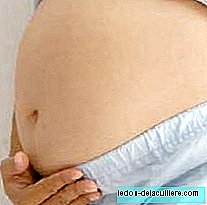
During the first months of the baby's life, the feces are usually soft and lumpy consistency (more liquid if fed with breast milk, more pasty if you drink artificial milk). But with the first porridge the baby may suffer constipation.
When we start complementary feeding, it is common for the baby's digestive system to respond with a slowdown and hardening of the stool. If the bowel movements are too hard, the baby suffers by not being able to expel them easily, because he is not used to having to do so much strength.
If the anus is irritated or there has been a small tear due to a previous bowel movement, the evacuation is even more painful, stool is retained and harder. As the baby evacuates in the diapers we realize that he cries and complains visibly.
This type of constipation makes the baby's attempts to poop one or more a day, although he does not always get it, and when he does it is a hard and scarce stool. You can also spend some day without evacuating.
Causes of constipation in babies
Constipation is usually due to the fact that when the solid diet begins, the digestive system works differently when it encounters new foods to digest and process. In addition, the introduction of complementary feeding is usually accompanied by a reduction in fluid intake That can aggravate the problem.
The less frequent organic cause is a narrowing of the intestine or intestinal stenosis. Stenosis or stegnosis is a term used to denote the narrowness or narrowing of the lumen of a hole or duct, both of acquired and congenital origin.
How to relieve constipation in the baby?
It is important that we continue to offer breast, before meals and also between meals, and start offering water, as salty porridge or cereals are more thirsty. The better the babies are hydrated, the easier the evacuation will be because the stool softens.
Therefore, the usual diet recommended by the pediatrician will try to increase the water and fiber intake, which are also found in fruits and vegetables.
Plum and kiwi are fruits with a lot of fiber that can help them normalize intestinal transit, and both can be taken after six months, although remember that in the case of kiwi only if the mother has consumed it regularly during the pregnancy and lactation
On the contrary, green banana or apple are more astringent fruits, so we can reserve them for when the baby is no longer constipated. We can also use whole grains, rich in fiber, to prepare your porridge.
Help you poop
In no case should the use of laxatives be used neither to introduce small objects in the anus as a stick or other homemade “tricks” that we still hear from our elders, because they can harm the baby and does not help the stool to come out, since with constipation they are large and hard.
It is good to do circular massages on the baby's belly for a few minutes. That can favor bowel movement. We can choose the relaxing moment of the bath or any other time when the baby is happy to receive the abdominal massage.
If we realize that the baby tries to poop, we can help him if he is lying on his back and we flex his legs on his gut, pressing lightly, as is usually done to expel the gases. If we remove the diaper and perform this maneuver, the posture may help you push.
As the feces are hard, if they poke enough through the anus we can, helped by a piece of toilet paper, take them and gently pull them. But if we notice that they do not come out easily we will not force because we can harm the baby. We leave that deposition or we can split the protruding part.
But this we will only do occasionally to relieve strong constipation, otherwise if we do it as a rule the baby gets used to not being strong.
If constipation problems persistently persist, we will have to go to the pediatrician to make the diagnosis and verify the possibility of having stenosis or narrowing of the intestine, very rare but that needs surgical intervention.
We hope these tips on baby constipation when taking the first porridge be useful and help your babies to regulate their bowel movements. There has been a fundamental change in their diet, so we have to give them a margin to get their body habituated, helping them as much as possible to that adaptation.
Photos | benklocek and Chris Winters on Flickr
In Babies and more | Childhood constipation: what to do, Baby poops, Supplementary feeding: When to start?












